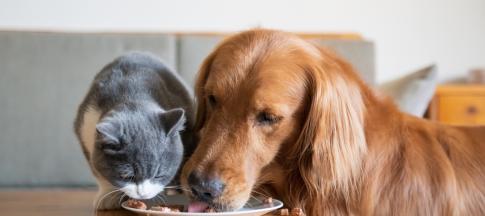
We know you want your cat to be healthy and happy – but accidents happen and it’s always best to be prepared.
Cat insurance will give you peace of mind if your cat does happen to get ill or have an accident. We discuss why it’s important to insure your cat or kitten.
Is pet insurance for cats or kittens worth it?
Insuring your cat or kitten is very important. Cat or kitten insurance will protect your finances and your pet against a range of accidents and illnesses that might otherwise cost you a lot of money.
While you can try to keep your cat or kitten as healthy as possible and give them all the right food, exercise and stimulation they need, you can’t protect them against everything.
They may have an accident or could contract a chronic disease you couldn’t have done anything to avoid, like cancer or diabetes.
Pet insurance is designed to cover or reduce the cost of any vet visits or treatments your cat or kitten may need.
Is pet insurance worth it for indoor cats or kittens?
Indoor cats or kittens don’t necessarily face as many dangers as outdoor cats, but that doesn’t mean they’re immune to health problems or accidents.
They could still have accidents in the home, whether that’s falling from a very high perch or something falling on them.
On top of that, there's still the danger of eating something toxic or choking.
There are a few things that can be toxic for your cats to eat and may be present in your home. These include:
- certain foods – including grapes, raisins and chocolate
- house plants and flowers – including aloe and lilies
- some beverages – including alcohol and caffeine
- cleaning products – including bleach or disinfectants
Beyond this, they could also experience any other kind of chronic illness the same way an outdoor cat could, like cancer or heart disease.
Pet insurance will help cover or reduce the cost of treating any of the illnesses or accidents your pet might have, which they could experience whether they’re an indoor cat or not.
How does cat or kitten insurance work?
First of all, you can choose which type of cat insurance you want. Insurers may offer a few different types and tiers, depending on what you need and how long you need it for.
For instance, our Lifetime Pet Insurance includes five different tiers of cover, from Blue tier up to Platinum tier.
Platinum tier is our highest level of cover.
It offers extra cover for things like behavioural treatment or specific dentistry issues – whereas our Blue tier is our budget-friendly option that covers the basics. It’s up to you to decide which suits you and your cat best.
Then, if your cat gets ill or has an accident, you’ll be able to make a claim and we’ll help cover the cost of veterinary care, medication and other associated costs if their issue is covered under your policy.
Remember, policy limits and exclusions apply – so always read your policy book carefully.
What affects the price of pet insurance for cats?
A few things can affect the price of cat insurance, including:
- their breed
- their age
- the level of cover you want
Older cats are more prone to illness or injury, so it can be more expensive to insure them. Read our guide on looking after older cats for tips to keep them healthy.
Similarly, some cat breeds are more prone to certain conditions, which can mean they may also be more expensive to insure.
For instance, Persian cats are more likely to get polycystic kidney disease and Maine Coon cats are more likely to have asthma or respiratory issues.


